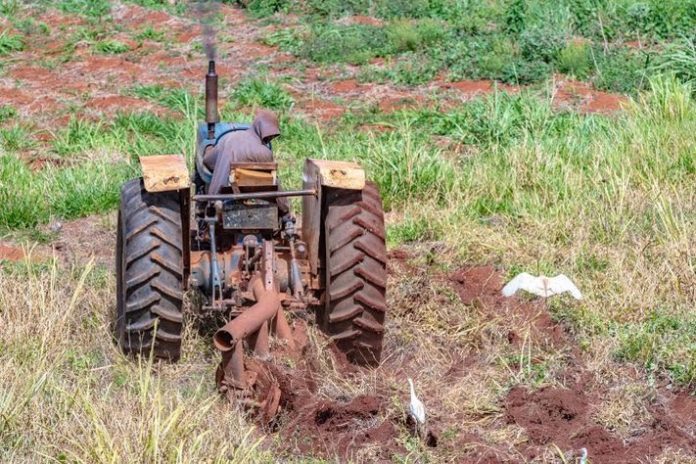“Agricultural industry actors in Jamaica face issues with accessing credit facilities from traditional financial institutions at affordable rates due to a lack of collateral, lack of structured financial data and the cost due to the intensive risk assessment requirements,” says Jermaine Henry, CEO of FlowFacto, a cloud-based financing platform for agriculture exporters.
Given heavy bureaucracy, strict requirements for collateral, the unpredictability of yields, price volatility, extended wait times for collection of receivables and the cash-intensive nature of the sector, financial institutions often find it difficult to assess the performance of agribusinesses, causing many to fall through the financial cracks. “The traditional lending sector is still using methods of risk assessment that are decades old,” explains Zachary Harding, CEO of Hyperion Equity.
Consequently, less than 2% of Jamaica’s commercial lending portfolio is allocated to agriculture (Bank of Jamaica) with less than 10% of Jamaican farmers having access to credit. (Jamaica’s National Financial Inclusion Strategy, 2016-2020).
“There are a lot of opportunities in agriculture but the funding is still lacking,” laments Marcus Sewell, a young farmer based in St. Catherine Jamaica. “When opportunities present themselves, sometimes you miss them because of limited access to funding. We get contracts from various entities for produce, but this does not overcome the challenge that we do not have the type of collateral that banks require. Equipment rentals are another similar challenge.”
According to the Food and Agricultural Organization of the United Nations, incomes generated by small farms are generally low, resulting in most farm households earning less than 25% of their household income from farming activities. Lack of access to capital for improved efficiency and expansion results in diminished productivity, which perpetuates poor agricultural performance and cycles of poverty contribution to GDP. I know that agriculture is far less than 7% of the lending portfolios of these institutions.”
Due to limited access to financial markets and a lack of legally recognized ownership of land, female-led agribusinesses are even more financially vulnerable. Across most of the region, including Jamaica, men own more than 70% of agricultural land and in countries such as Guyana, approximately 90% of female heads of farm households do not hold land titles.
“I know some women whose sole way of selling to a commercial market is under the name of a male family member or spouse,” says Keithlin Caroo, Co-Founder of Helen’s Daughters, an agricultural not-for-profit based in St. Lucia.
Financial inclusion is another factor impeding access to credit. Many agricultural businesses in the region are unbanked or under-banked. According to the World Bank, nearly half of the world’s farmers are unbanked and those who have accounts do not use them to their full potential— less than 15% report using banks to receive agricultural payments
According to the National Financial Inclusion Council of Jamaica’s National Financial Inclusion Strategy, 2016-2020, “Uneven performance of their agricultural loan portfolios… combined with the lack of knowledge about agriculture and agricultural lending for most financial service providers, limits their capacity to grow their loan portfolios to farms.” The supply of formal non-bank finance has also been limited, creating a market for fintech-driven solutions.
Jermaine Henry’s FlowFacto has created a risk algorithm which uses alternative data specific to the agricultural export industry to create predictive models and risk (performance and financial) scores for lending, significantly reducing the time and requirements needed to access capital for agricultural export businesses. This solution is invaluable for businesses that have to wait extended periods of time for receivables to come in.
Varun Baker believes that blockchain is the answer. His company, Farm Credibly, provides access to loans for unbanked farmers in Jamaica. Alternative credit scoring is provided to microlenders by assessing farms’ real economic activity, based on electronic records of business transactions.
“There are farmers out there who are productive, and would be even more so if they had access to capital, so we are in the business of helping to identify who is who, while keeping sensitive company and personal information private and secure at all times,” Baker explains.
Jamaica’s National Financial Inclusion Strategy, 2016-2020 highlights the necessity of expanding “agricultural finance in a prudent and sustainable manner, with significant participation of private funding to support the growth of the agricultural sector.”
Within the traditional sector, The Access to Finance Facilitation Panel, a group made up of members of Jamaica’s public and private sector, is aiming to provide farmers with broader access to loans from commercial banks by allowing applicants to declare movable assets such as accounts receivable, inventory and equipment, instead of traditional collateral.
According to Zachary Harding, “Agriculture comprises 7% of Jamaica’s gross domestic product and when combined with agro-based manufacturing, this figure rises to about 15%, yet agriculture is widely considered riskier than industry or trade. Financing of agribusiness needs to be a priority— our development as a nation depends on it.”








